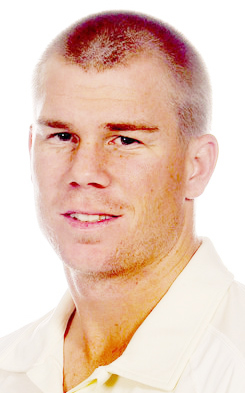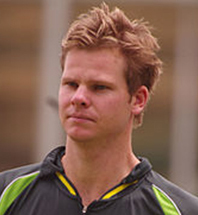MELBOURNE, (Reuters) – As Steve Smith and David Warner padded up at suburban Sydney cricket grounds over the weekend, the warm spring sunshine may have seemed fitting weather for the banned Australian cricketers to take a small but important step in their rehabilitation.
On the other side of the globe, however, their former test team mates stepped into a Dubai furnace to prepare for a series against Pakistan that threatens to be another painful reminder of Australia’s fall from grace.
As much as new coach Justin Langer and Captain Tim Paine speak of building unity in the United Arab Emirates, the narrative of Australian cricket has become a discourse of division, between a team struggling to forge a new identity and individuals plotting their own course to redemption.
It has been six months since the ball-tampering scandal erupted in South Africa, and former captain Smith and fellow outcast Warner are only halfway through their suspensions.
But it is already clear that the players’ paths will almost inevitably converge with the arc of a team that is desperate to be competitive for next year’s World Cup and the Ashes.
“If our environment’s right and they’re playing well, there’s no reason they shouldn’t be welcomed back in to help us win the World Cup and help us win the Ashes next summer,” Langer said last week.
 Governing body Cricket Australia was widely praised for taking a hard line in punishing Smith, Warner and opening batsman Cameron Bancroft, the third player in the ‘sandpaper-gate’ fiasco in Cape Town.
Governing body Cricket Australia was widely praised for taking a hard line in punishing Smith, Warner and opening batsman Cameron Bancroft, the third player in the ‘sandpaper-gate’ fiasco in Cape Town.
In addition to being shut out of international and state-level cricket, the three are banned from playing for Big Bash sides in the lucrative domestic Twenty20 tournament.
Smith and Bancroft are to be excluded from leadership roles for another 12 months after their suspensions finish, while Warner, seen as the chief conspirator in the bungled ball-tampering caper, is banned from them for life.
WEAKEST SQUAD
The punishments are now regarded excessively harsh by a growing band of dissenters.
The raw outfit touring the United Arab Emirates features five uncapped players and is seen as the weakest Australian squad since the mid-1980s, when Allan Border’s team was gutted by the rebel tours of apartheid-era South Africa.
Smith and Warner were castigated in social and mainstream media in the days after the scandal, but there were mostly beaming headlines and warm applause from the swelled crowds that saw them dominate with the bat for Sydney clubs on Saturday.
Some took exception to Warner’s trademark leap-and-fist-pump as he raised his century for Randwick Petersham, having spanked a modest St George attack around the Coogee ground.
Former New Zealand captain Brendon McCullum suggested he should not get too carried away, tweeting: “Geez Davey, This celebration is the equivalent of Sir Ed Hillary giving it large climbing his front steps, post Everest! Hahaha.”
Warner has celebrated test centuries every home summer since his debut series against New Zealand in 2011, but there will be no swashbuckling knocks from the hard-hitting lefthander against India and Sri Lanka when they tour in December and January.
Warner and Smith will continue to criss-cross suburban Sydney throughout the Australian summer as part of their penance, free to peel off hundreds against amateur bowlers away from the glare of the spotlight.
Paine’s Australia faces a much tougher rehabilitation in front of expectant home crowds. The men that brought the team into disgrace may be shuffled to the side but their shadows will loom large as spring turns to summer.

